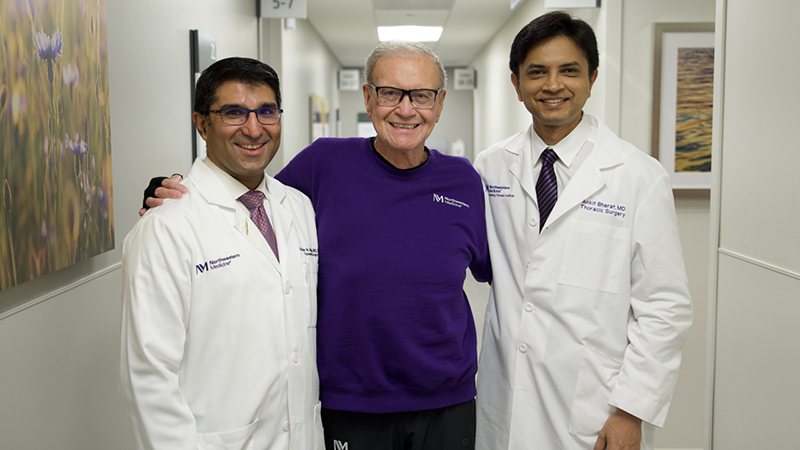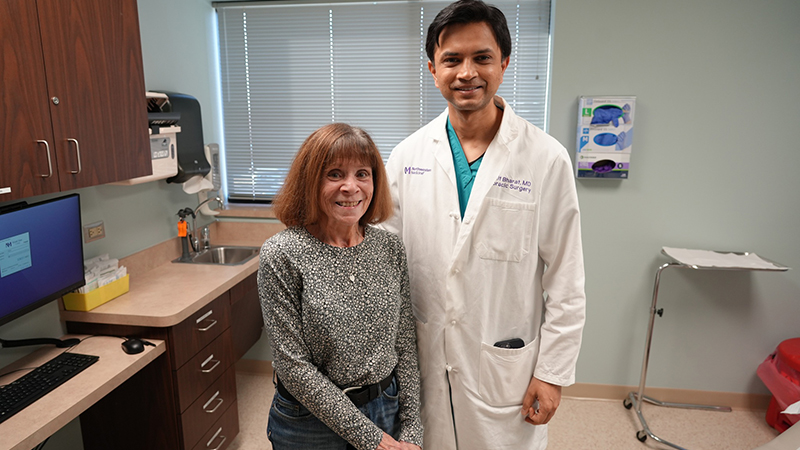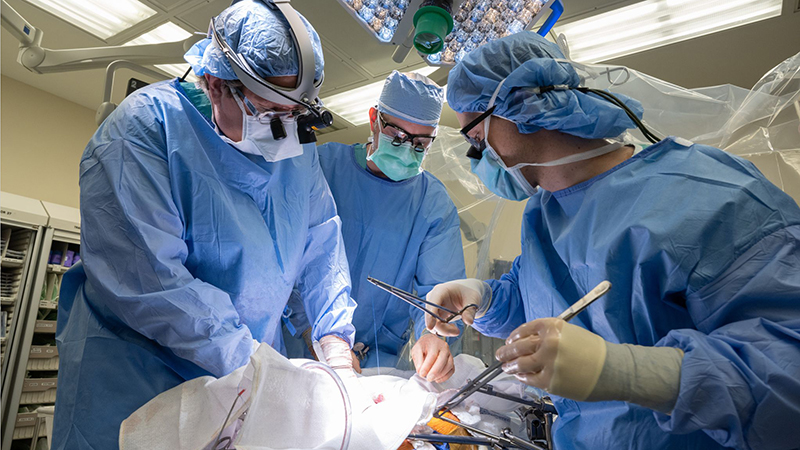Liver Transplant Recovery
Liver Transplantation Recovery
About 86 to 96 percent of all transplanted livers still function one year after a transplant. We will provide you with the most recent results from Northwestern Memorial Hospital as listed in the Scientific Registry of Transplant Recipients (SRTR). You also can go to the SRTR website to view results from Northwestern Memorial Hospital, as well as from all other transplant centers in the United States. This database is updated every six months.
About rejection
A major concern after transplant surgery is the risk of organ rejection. Rejection happens when your body stops accepting your new organ. When this occurs, your immune system attacks your new liver, as if it does not belong in your body. This triggers your body to make white blood cells and antibodies, which reduce the blood flow to the liver, can damage the new liver or limit how well the liver works.
Acute (sudden and severe) rejection often happens in the first several months after transplant. But rejection can occur at any time. The donated liver always retains its original identity. You will need to take anti-rejection medicines for the rest of your life. Failure to do so always will lead to rejection and organ failure.
Watch for signs of rejection:
- A temperature above 100.50 F
- Pain or tenderness over the transplant site
- Feeling like you have the flu
- Abdominal pain
If you notice any of these signs, you must call the Transplant Clinic right away. This allows treatment to begin quickly to help you have the best outcome. Rejection is confirmed with blood work and a needle biopsy of the liver. This biopsy will be done in the Interventional Radiology Department.
Many times, rejection can be detected only by lab tests. You may not have symptoms at all. That’s why it’s very important that you have routine blood tests as directed by your Transplant Team. We want to detect rejection before you have any symptoms. This allows needed tests and treatment to begin right away.
Infection
Anti-rejection medicines limit the action of your white blood cells (WBCs). WBCs help your body fight infection. When you take anti-rejection medicines you have an increased risk for infection. It is very important that you try to prevent infection and watch for signs of infection.
Call the transplant nurse coordinator right away (day or night) if you have:
- A temperature above 100.5°F
- Nausea, vomiting or diarrhea (more than 4 watery or very loose stools) for more than 24 hours
- Redness or tenderness around your incision
- Anything other than red-tinged clear drainage from your incision
Call the transplant nurse coordinator during clinical hours if you have:
- A productive cough that lasts more than 2 days
- A sore throat or mouth sores
- Pain or burning while urinating
- Cloudy urine or a feeling of urgency to urinate
Follow these important but simple steps to help prevent infection:
- Avoid contact with persons who have a cold or flu or other illness.
- Keep your vaccines up to date. Remember that you cannot have vaccines with live viruses. Ask your transplant physician or nurse coordinator to make sure any vaccine is okay.
- Get a flu shot every year and a pneumovax shot every five years.
-
Practice good hand washing, which means:
- Wash your hands for 30 to 60 seconds using soap and warm water. Scrub all areas, including between the fingers, under the fingernails and around the nail beds.
- You can also use alcohol-based hand rubs and wash for 20 seconds.
- Use plain soap and water for visibly dirty hands.
- Use alcohol-based hand-rubs when your hands are not visibly dirty.
- Always wash your hands when visibly soiled, after you use the bathroom, and before and after you eat.
Just like everyone else, you will get colds and the flu. Your immune system should be able to fight these common infections and you should recover normally. Also, the risk of infection becomes less as your anti-rejection medicines are decreased over time.
Explore our transplant resources. These include patient education materials, support groups and more.




